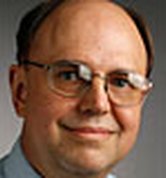As the most prominent non-candidate in Rhode Island, Governor Chafee begins the second phase of his term of office unfettered, he says, by the demands of campaign politics. He announced Sept. 4 that he won"t try for reelection.
One of the topics he wants to focus on as governor, he says, is the economy. It seems timely to update our review of a promise he made when he came to the State House.
In his campaign platform, candidate Lincoln Chafee listed ethics as an important component of his First One Hundred Days Plan for Jobs. And as governor, according to Chafee spokeswoman Christine Hunsinger, he fulfilled a promise to appoint an ethics liaison to whom concerns could be taken.
He did that on his inauguration day, Jan. 4, 2011, when he issued an executive order saying that "it is imperative that the citizens of Rhode Island believe in and trust their state government” and appointed his executive counsel as public ethics officer.
Chafee vowed during his campaign, "We will root out the cronyism and corruption that hobbles job creation.” The executive order directs state employees to abide by statutes such as the Open Meetings Law and directs the heads of departments, boards and commissions to encourage inquiries to the public ethics officer.
This is one of 32 Chafee campaign promises we have been tracking on our Linc-O-Meter. The day of his inauguration, we ruled his promise to issue an executive order on ethics as a Promise Kept.
But we decided to catch up on the second part of that pledge, regarding the appointment of an ethics officer and whether the appointee has done what was promised.
Claire Richards, Chafee"s executive counsel, was designated as the administration"s public ethics officer, according to Hunsinger, who said the appointment was publicized within state government and on the governor"s web site.
It is not clear how effective Richards has been in that role or how vigilant department heads have been because nobody has been keeping tabs on how many ethics questions or complaints she has fielded and how the complaints were resolved.
"We don"t track the inquiries or the resolution of them,” Hunsinger said. "It is just one of the things she does on a daily basis.” Hunsinger said it would be too difficult to maintain a comprehensive record of such activity.
Richards reported to Hunsinger, however, that she fields one or two inquiries a week from state employees or the public regarding ethics questions and confers two or three times a month with the state Ethics Commission, which investigates and punishes ethical breaches.
It is unclear whether Chafee has rooted out "the cronyism and corruption that hobbles job creation,” because there have been no cases that his ethics officer has brought into the public eye. But in a literal sense, Chafee did what he said he would do. He has an active ethics officer. The judges reaffirm this pledge as a Promise Kept.
